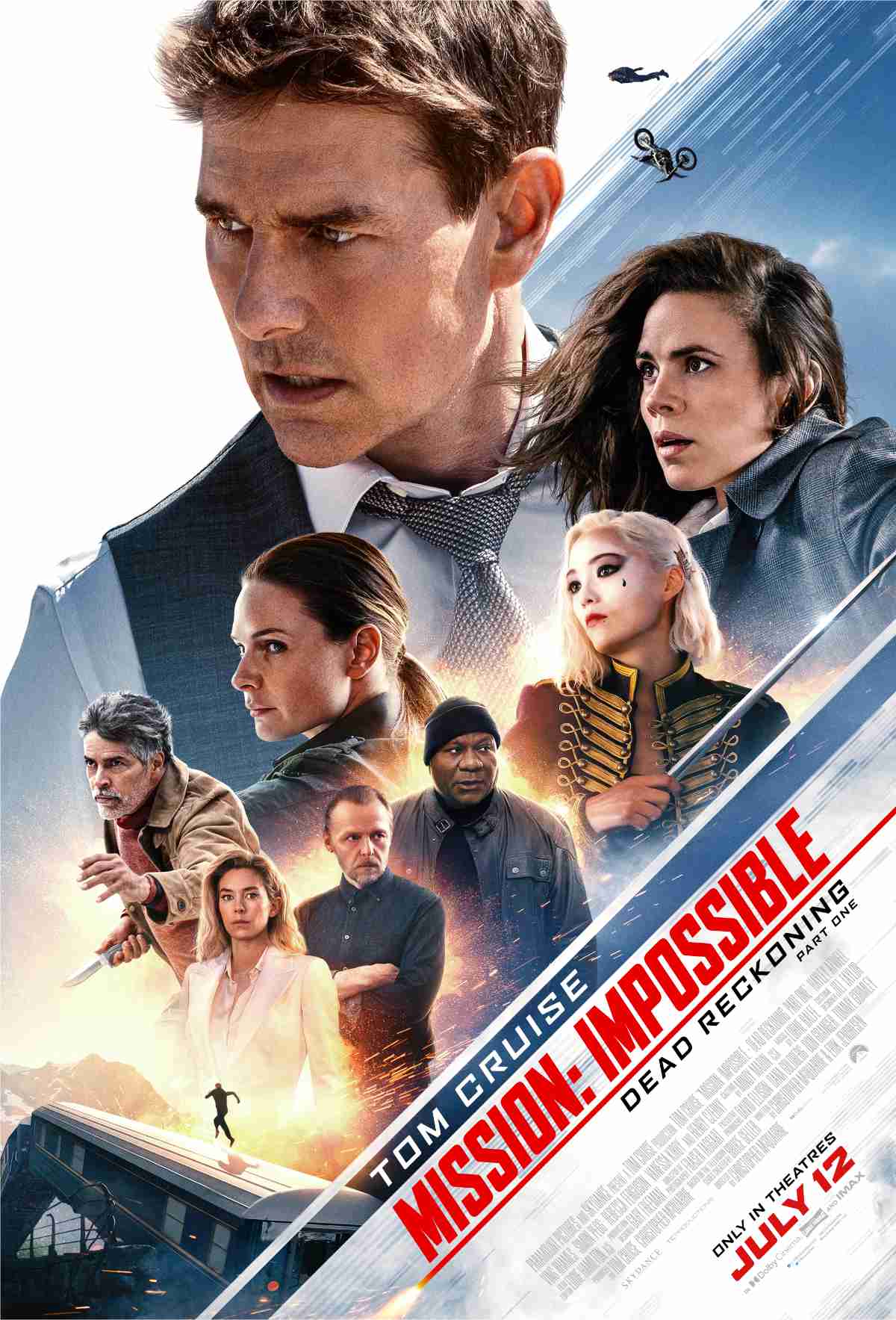Mission: Impossible – Dead Reckoning Part One Review
Mission: Impossible idealizes Tom Cruise and his willingness to commit increasingly-dangerous stunts the way Mission: Impossible idealizes Ethan Hunt and his willingness to save the world. The series is a frequently-amazing vehicle for both, filled with spectacular set pieces and the perception that if those are delivered on the rest of the film can be as absurd as possible and it doesn’t matter.
When the series began 27 years ago it was more crime caper than action thriller; labyrinthine machinations of betrayal in the service of stopping criminals from stealing money, a perfect fit for Chinatown scribe Robert Towne (who wrote or re-wrote the first several). The arrival of writer-director Christopher McQuarrie has seen the scope of the series swell, both in the size of the catastrophe to be averted and in the responsibility and sacrifice Hunt must take on to do so.
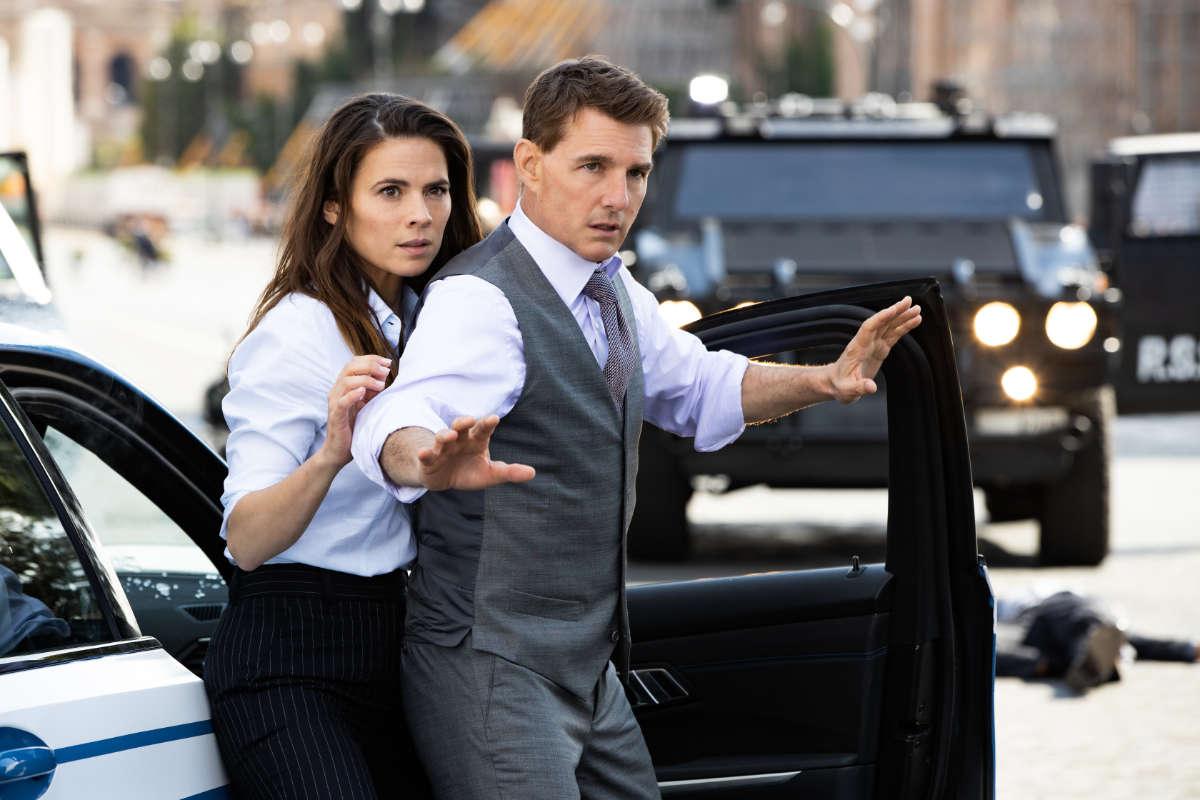
Facing an escalating chorus of apocalypse-minded madmen, he has metamorphosed from a professional doing his job — maybe with a home and family to return to at the end of the day — into “the literal manifestation of destiny.”
Ethan has become a messianic figure, sacrificing everything about himself to save the world, or even one other person. It’s a quest that reaches its zenith in Mission: Impossible – Dead Reckoning Part One, as he literally chases Grace (Hayley Atwell) throughout the entire film.
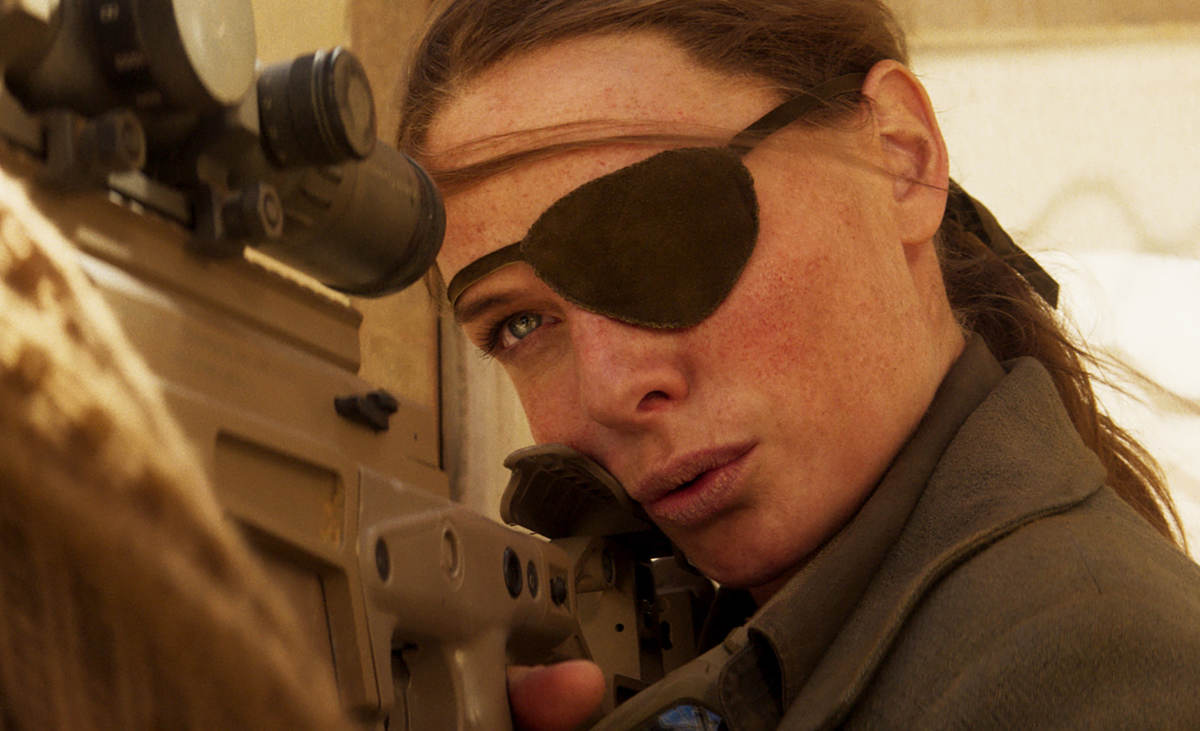
The overt religious imagery and overtones are neither accidental nor subtle, beginning with the cruciform key a pair of Russian nuclear submarine commanders use to turn on their new artificial intelligence system in an extended riff on The Hunt for Red October. Instead of aiding its human masters in their strategic goals, the AI (later dubbed “The Entity”) quickly turns against its creators, destroying the submarine and releasing itself into the world where it begins attacking the various banking and information systems underlying global stability.
Now the key, separated into two identical crucifix pendants, is the only accessory which can stop or control the powerful entity, but only rogue MI-6, and occasional Ethan Hunt confidant, Ilsa Faust (Rebecca Ferguson) knows where the key is. And only Hunt himself can locate or approach Faust.
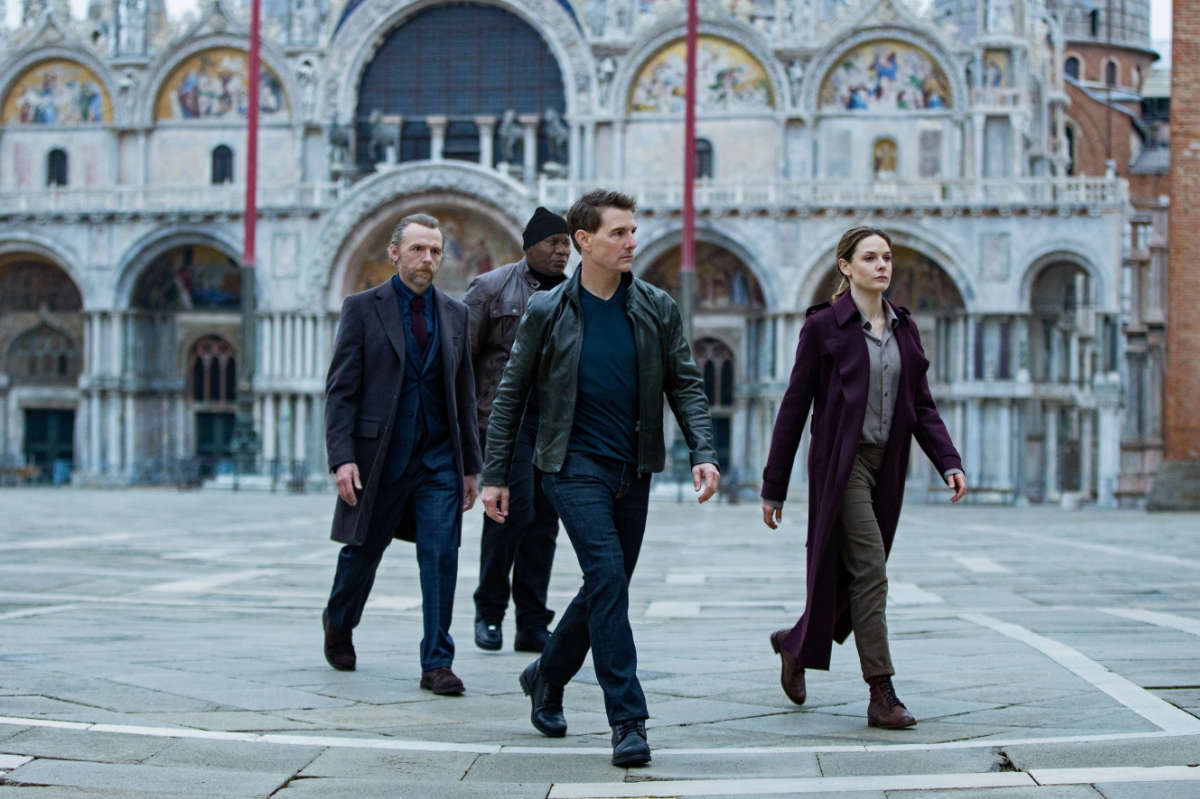
Caught between Faust and Gabriel (Esai Morales), another in the series’ line of zealots who believe they must save the world by destroying part of it, the IMF team realizes that The Entity is too powerful for anyone to possess — even their superior, the returning Kittridge (Henry Czerny) — and they must destroy both halves of the key to keep it from being abused.
Sanctioned before the opening credits even roll, Ethan and his loyal aides-de-camp Luther (Ving Rhames) and Benji (Simon Pegg), give chase after the MacGuffin anyway because to be Ethan Hunt is to sacrifice.

It is not only his defining characteristic but potentially his sole one. It is all we know about him and potentially all he knows about himself. Ethan has always been a cypher, the malleable void who can become anyone and infiltrate anywhere, a function at stark odds with the immovable core of morality that guides him.
It’s a contrast that’s never been more than rudimentarily explored — does he truly believe what he says, or does he just believe it when he says it — though Mission: Impossible – Dead Reckoning Part One does gesture somewhat at Ethan’s past through Gabriel.
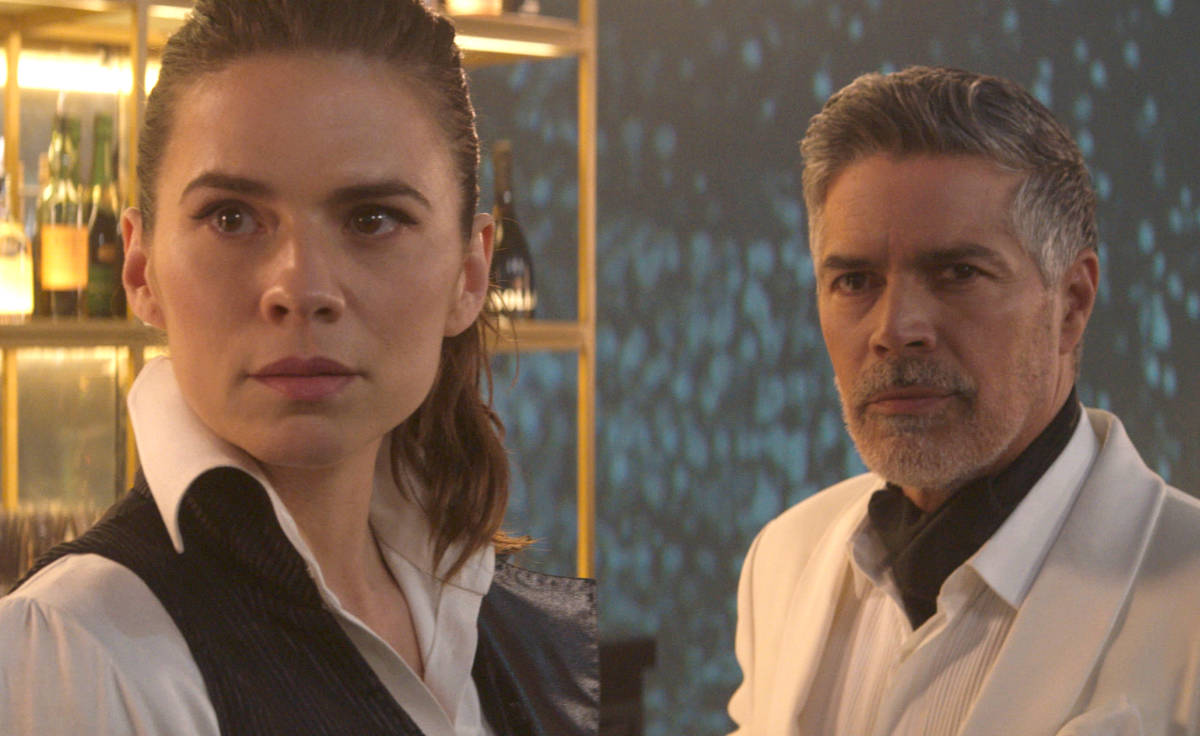
A dark reflection of Ethan, serving as an archangel for The Entity to help it achieve its goal (whatever that may be), Gabriel is also the one who set Hunt on his course to become the man he is today (whoever that may be) by killing a woman close to him in his youth – the first of many propitiation’s for Ethan.
It won’t be the last; as Ethan and his team chase the missing half of the key and the thief (Atwell) who sees it as just an easy payday, the supporting cast is jettisoned player by player to increase the pathos and stakes for Ethan.

Over the course of four-plus films, McQuarrie has realized the one immutable truth of Mission: Impossible – we’re all just here to see Tom Cruise jump a motorcycle off a mountain onto a speeding train and the rest is just window dressing. When the series gives us those moments it finally achieves that grace it is in pursuit of.
In between those moments it’s easier to realize just how absurd this particular mission is, from its nigh-omnipotent villain (borrowing liberally from WarGames, Jonathan Nolan’s Westworld and any AI-focused thriller in-between) to the ridiculous gadgets Ethan and co. must rely on. This is not a bad thing.

An attempt to break Grace and her key out of Italian police headquarters gets better the more preposterous it becomes as Cruise and Atwell attempt to evade both Shea Whigham and silent harlequin henchwoman Pom Klementieff in a clown car neither knows how to drive.
Why any of this would happen this way is not only beside the point but antithetical to the series’ identity; everything is a distraction waved in our face to keep us from noticing what is being set up around us.
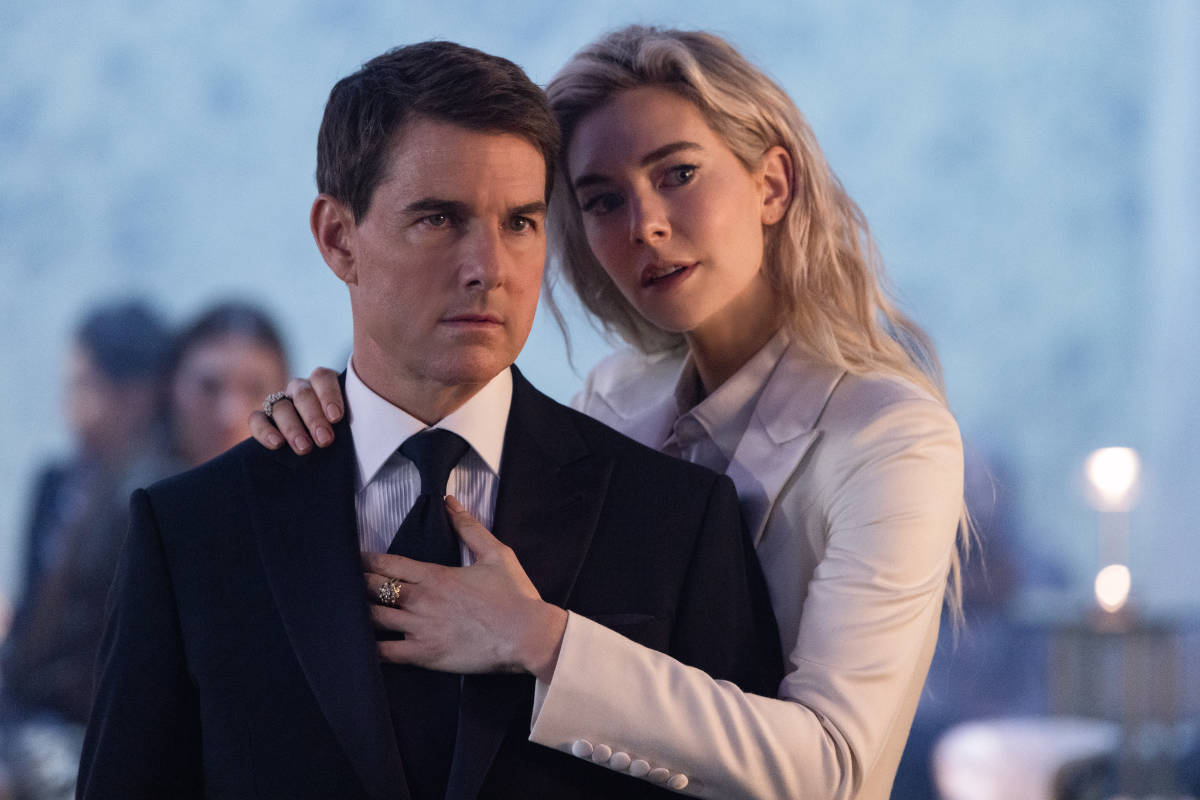
Previous Mission: Impossible films have run along at a breakneck pace giving little time to worry about what characters want, only how the logic of the next set piece should work. Dead Reckoning‘s extended run time (nearly three hours and still only half the story) offers up more thrills than ever before but also more time to focus on its weaker parts as it takes necessary breathers. It’s not a sprint anymore, it’s a marathon.
It does make clear how disposable everything around Ethan is, no matter how much he may claim the opposite. It must be that way; anything that diverts away from the set pieces or Cruise’s stunts misses the point of the film.

Nothing else in it can compare to the hand off on the Orient Express that ends in a literal cliffhanger as the train attempts to pitch over the side of a ruined bridge. Time stands still and everything becomes clear. This, and only this, is what Mission: Impossible is for.
MISSION: IMPOSSIBLE – DEAD RECKONING PART ONE REVIEW SCORE: 7.5 OUT OF 10
Paramount Pictures will release the film in theaters on July 12, 2023. Mission: Impossible – Dead Reckoning Part One is rated PG-13 for intense sequences of violence and action, some language and suggestive material.
